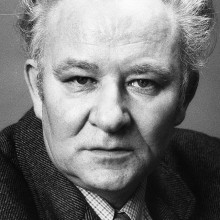Polish literature

Zbigniew Żakiewicz
(born 1933) – novelist, literary critic, historian of literature and children’s author. He was born in the Wilno region (now Lithuania) in a family with landowning traditions. After the war he was repatriated to Poland, where he lived in Łódź, Wrocław, Opole and Gdańsk, working as a researcher at Gdańsk University. He was strongly affected by being a homeless exile from his native lands, which was clearly expressed in his work, until years later he found himself a new home in Kashubia (near Gdańsk), of which he wrote: “I spent my first few years in Kashubia putting down new roots for the first time since the repatriation exodus of 1946. Here at last I felt I was becoming myself again.” (from Beheld, Caught in Time).
Żakiewicz’s work belongs to the trend of borderlands fiction, and can even be regarded as its classic epitome. In a series of books he reverently evokes the world of the north-eastern Polish borderlands, perhaps most fully in Wilno Saga, which consists of three volumes: The Abacz Clan (1968), Lupine Meadows (1982) and Wilio, At the Bottom of the Sea (1992). Weaving autobiographical themes into his text, he describes the childhood and youth of a boy growing up in the borderlands, where various cultures, languages and religions mix. As often occurs in this sort of fiction, Żakiewicz’s borderlands world is on the threshold of an inevitable catastrophe that will destroy it irrevocably, so there is a lot of high-flown nostalgia in it. Wanting to preserve the memory of the borderlands world through literature, Żakiewicz fills his writing with descriptions of the local nature and customs, while also trying to salvage the typical features of borderlands language, which combines elements from various sources.
Another theme in Żakiewicz’s work involves the problems of being an exile who has left his native land, and also his “childhood paradise”, and is looking for a place he can regard as his own, where he can try to put down new roots. This involves putting down roots in actual space (e.g in Dearest Auntie, 1988) as well the search for a metaphysical sanctuary (as in Beheld, Caught in Time, 1996).
BIBLIOGRAPHY
- Chłopiec o lisiej twarzy (The Boy With the Fox’s Face), 1962
- Liście (Leaves), 1967
- Ród Abaczów (The Abacz Clan), 1968
- Biały karzeł (The White Dwarf), 1970
- To sen tylko, Danielu (It’s Just a Dream, Daniel), 1973
- Dolina Hortensji (Hortensja Valley), 1975
- Dziennik intymny mego N.N. (The Intimate Diary of My Anon), 1977
- Wilcze łąki (Lupine Meadows), 1982, published 1992
- Ciotuleńka (Dearest Auntie), 1988
- Saga wileńska (Wilno Saga), 1992
- Wilio, w głębokościach morza (Wilio, at the Bottom of the Sea), 1992
- Ujrzane, w czasie zatrzymane (Beheld, Caught in Time), 1996
- Rosja, Rosja..., Gdańsk: Polnord, 2004
- Tryptyk wileński, Gdańsk: słowo/obraz terytoria, 2006